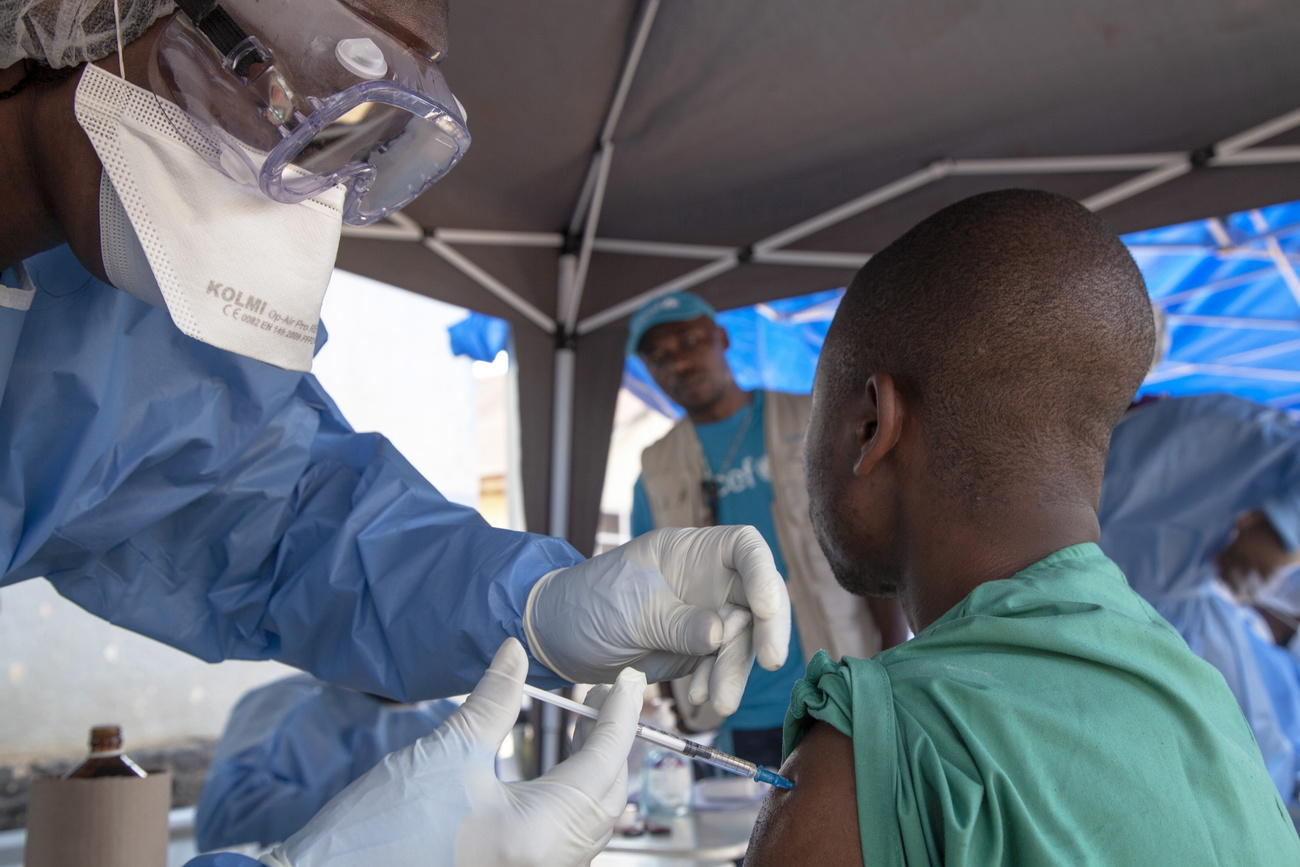
Novartis steps up coronavirus fight as part of new collaboration

Several big pharmaceutical companies have joined forces with the Bill & Melinda Gates Foundation to scale up solutions and support health systems in response to the coronavirus pandemic.
On Thursday, Basel-based pharmaceutical giant Novartis announced that CEO Vas Narasimhan would be the co-chair of a consortium of life science companies to speed up the development and delivery of vaccines, diagnostics and treatments for Covid-19 as well as other solutions.
“We feel a deep shared responsibility to see if there are specific areas where collaboration across the life sciences industry and the Bill & Melinda Gates Foundation can accelerate solutions to this pandemic,” said Narasimhan in a statementExternal link.

More
Coronavirus: the situation in Switzerland
The consortium is intended to help ramp up solutions and tap the industry’s scientific knowledge and experience in delivering products at a scale of billions per day.
As a first step, the 15 companies that are part of the consortium have agreed to share their proprietary libraries of molecular compounds with the Covid-19 Therapeutics Accelerator launched by the Gates Foundation, Wellcome, and Mastercard two weeks ago. The accelerator will screen them for potential use against Covid-19 and if there are successful hits, the compounds would move rapidly into in vivo trials in as little as two months.
Other companies that have teamed up in the consortium include GSK, Pfizer and Gilead. Gilead’s drug Remdesivir is an intravenous, antiviral medicine that is being studied in clinical trials as a treatment to Covid-19.
Last week, Novartis announced it was donating up to 130 million doses of generic hydroxychloroquine, which along with a related drug, chloroquine, is currently under evaluation in clinical trials for the treatment of Covid-19.
The company has also created a Covid-19 Response FundExternal link providing $20 million (CHF 19 million) in grants to support public health initiatives for communities affected by the pandemic.
Novartis is one of several big pharmaceutical companies that has moved out of the emerging infectious disease business. In 2014, the Swiss company sold its vaccine business to British pharma company GSK after operating at a loss for years. The company no longer has critical mass of expertise in virology, and no laboratories are working on antivirals or diagnostics.

More
With no prospects for profits, big pharma neglects new infectious diseases

In compliance with the JTI standards
More: SWI swissinfo.ch certified by the Journalism Trust Initiative




























You can find an overview of ongoing debates with our journalists here . Please join us!
If you want to start a conversation about a topic raised in this article or want to report factual errors, email us at english@swissinfo.ch.